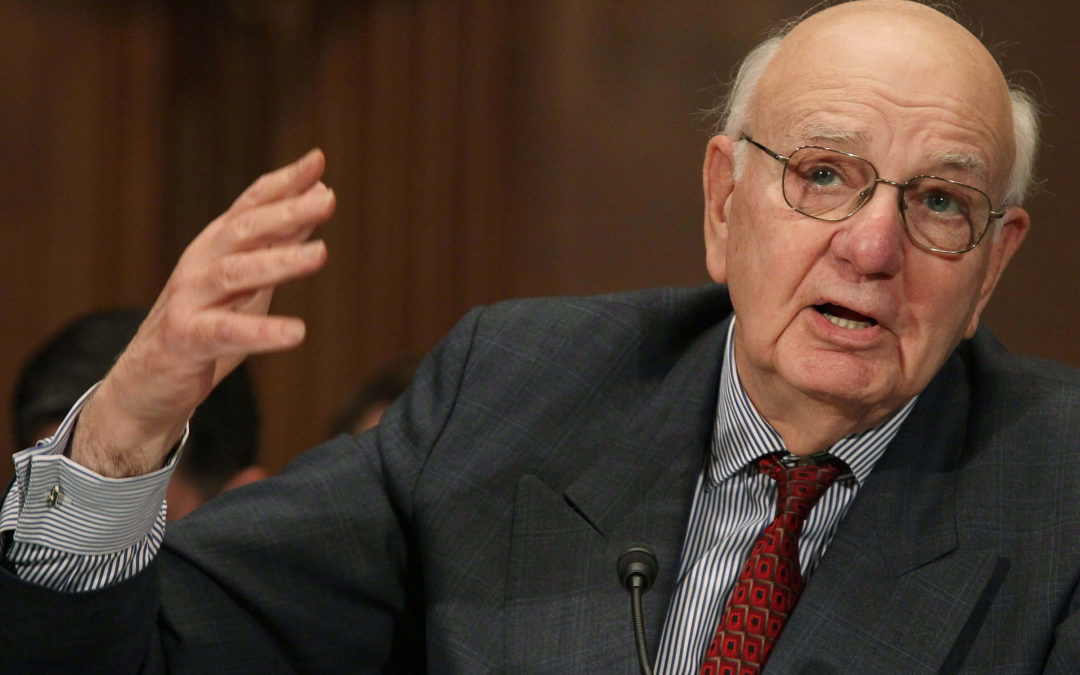Former Federal Reserve Chair Paul Volcker said the United States is “developing into a plutocracy” and that the main source of blame is the federal government and big-money donors who influence policy behind the scenes.
Volcker served as Fed chair under presidents Jimmy Carter and Ronald Reagan from 1979 to 1987, and is widely credited with ending the high levels of inflation seen during the 1970s and ’80s. He also served as chairman of the Economic Recovery Advisory Board for two years under President Barack Obama.
In an interview with the New York Times, Volcker said the country is “in a hell of a mess in every direction.” That particular sentiment that couldn’t have come at a more appropriate time after bombs were mailed to billionaire investor, liberal donor and Republican foil George Soros on Monday, and former DNC Chair Debbie Wasserman Schultz’s office, the Clintons, Obamas and CNN’s New York offices on Wednesday.
Per the New York Times:
“Respect for government, respect for the Supreme Court, respect for the president, it’s all gone,” said Volcker. “Even respect for the Federal Reserve.”
“And it’s really bad. At least the military still has all the respect. But I don’t know, how can you run a democracy when nobody believes in the leadership of the country?”
Volcker is publishing a new book, “Keeping At It: The Quest for Sound Money and Good Government,” to be released on Oct. 30. In his book, Volcker hammers the rich for their unrelenting influence in politics.
“There is no force on earth that can stand up effectively, year after year, against the thousands of individuals and hundreds of millions of dollars in the Washington swamp aimed at influencing the legislative and electoral process,” he wrote in the book.
Volcker also explained why he thinks America is becoming a plutocracy — a country governed by the wealthy and elite — with its government overrun by lobbyists and think tanks.
“The central issue is we’re developing into a plutocracy,” he told me. “We’ve got an enormous number of enormously rich people that have convinced themselves that they’re rich because they’re smart and constructive. And they don’t like government, and they don’t like to pay taxes.”
Volcker also gave his thoughts on President Donald Trump’s criticism of the Federal Reserve, which he ramped up again in an interview in the Wall Street Journal on Tuesday, comparing it to his own experience with Ronald Reagan.
Mr. Volcker recounts being summoned to meet with President Ronald Reagan and his chief of staff, James Baker, in the president’s library next to the Oval Office in 1984.
Reagan “didn’t say a word,” Mr. Volcker wrote. “Instead Baker delivered a message: ‘The president is ordering you not to raise interest rates before the election.’” Mr. Volcker wasn’t planning to raise rates at the time.
“I was stunned,” he wrote. “I later surmised that the library location had been chosen because, unlike the Oval Office, it probably lacked a taping system.”
He also noted current Fed policy, such as the 2 percent inflation target it has as its goal for inflation.
“I puzzle at the rationale,” he wrote. “A 2 percent target, or limit, was not in my textbook years ago. I know of no theoretical justification.”
With a laugh, he told me that he believed the policy was driven by fears of deflation. “And we haven’t had any deflation in this country for 90 years!”
The article closed with Volcker’s thoughts on the next market crash. When asked about the stability of banks he said, “They’re in a stronger position than they were, but the honest answer is I don’t know how much they’re manipulating.
That, he said, is the real challenge facing economic policymakers. “Everybody talks about monetary policy,” he said, “but the lesson of all this is we need better, stronger supervisory powers.”




